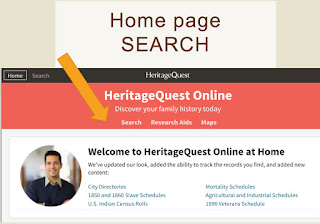Not long ago, Find a Grave added yet another way to search its memorial pages: By key words or names in the biography section.
As shown above, I tested this search by looking for a name in my husband's family tree: Frank Bentley Curtis. Actually, I already knew this name appears in at least three generations descended from my husband's 3d great-grandfather, William Tyler Bentley (1795-1873) and 3d great-grandmother, Olivia Morgan Bentley (1799?-1838).
Searching without quotation marks returned more than 170 results, so I did another search for "Frank Bentley Curtis" in quotation marks. Only 6 results, including 2 memorials that are sponsored--meaning someone has paid to remove the ads, upload 10 more photos or documents, and showcase the page with a premium look.
I put red arrows on the image below to indicate sponsorship of two of these results. Usually someone who pays to sponsor a memorial has some relationship to the deceased person, which means those memorials are definitely worth a closer look. Find a Grave sponsorship is optional, see the help page here. You can actually search for a memorial according to whether it's sponsored or not, but I didn't do so in this case.
I investigated each memorial in the results list and wow, did I come away with a ton of fresh clues and insights. The creator of these memorials wrote about personally speaking with or corresponding with descendants, visiting cemeteries, looking for proof of marriages, and so on. The creator also posted ancestor photos, vital records, and other relevant images. Happily, each memorial is linked to at least a few of that ancestor's parents, siblings, children, spouses.
Currently, I'm double-checking some of the bio details but I feel grateful for these information-packed memorials as a headstart to better understanding this branch of hubby's tree. And as always, I'm grateful that Find a Grave remains free for research like this (and for posting bite-sized bios and photos as cousin bait).
There are so many ways to use this new bio search...perhaps by searching for a specific place or occupation or military unit or rank as part of FAN club research (friends/family, associates, neighbors). Give it a try on its own or as part of a search where you look for someone by surname and/or date and/or cemetery location and/or sponsorship.












